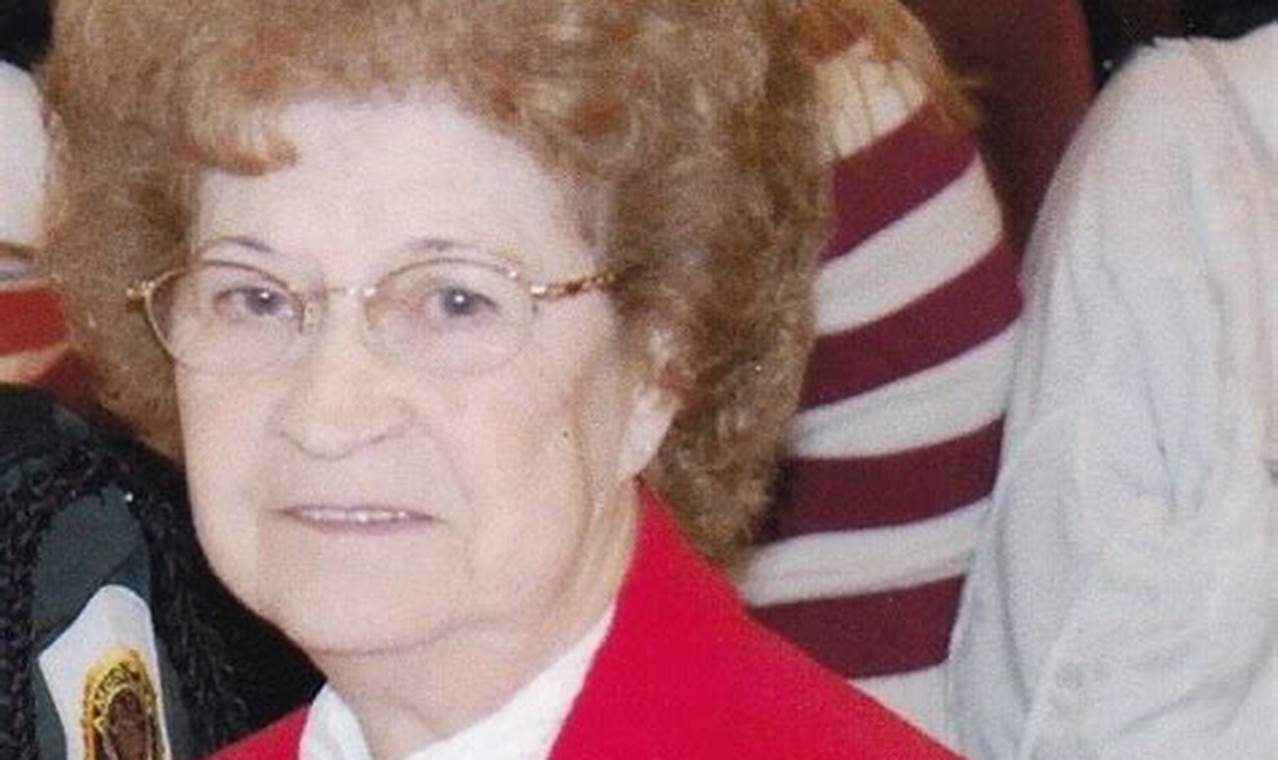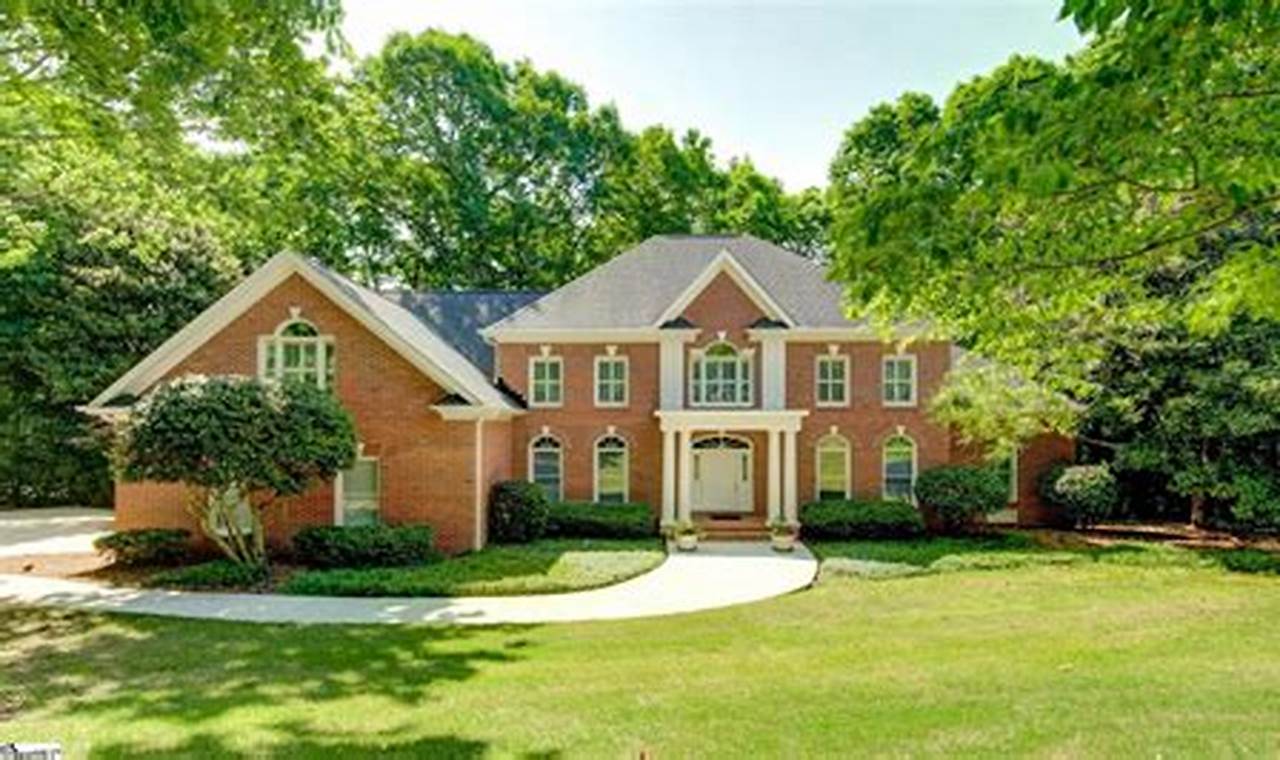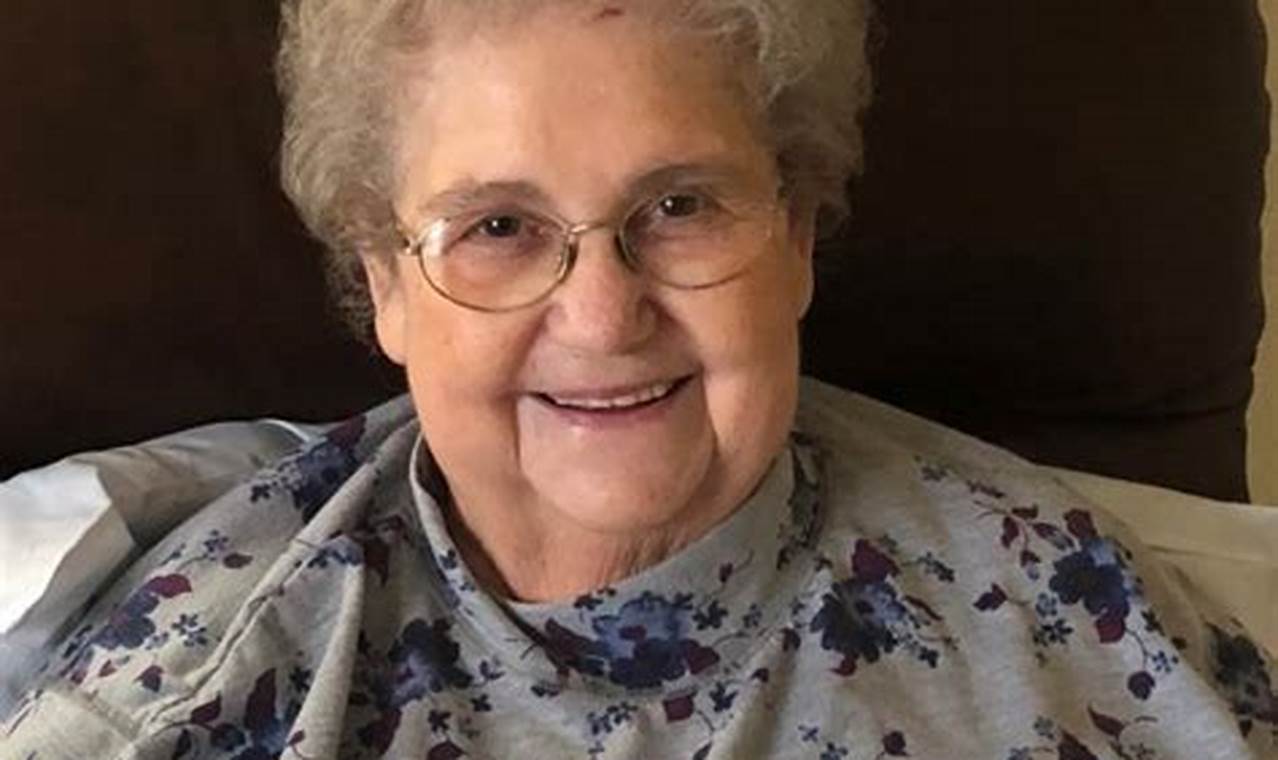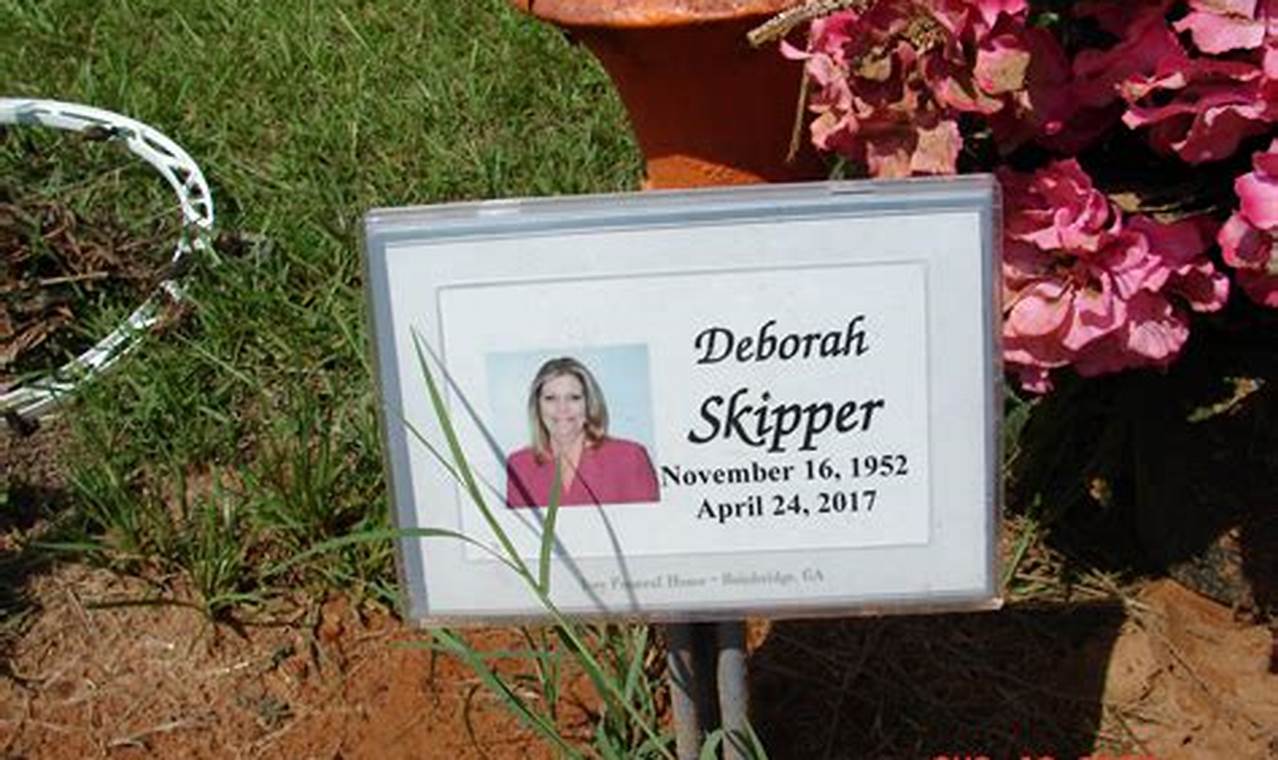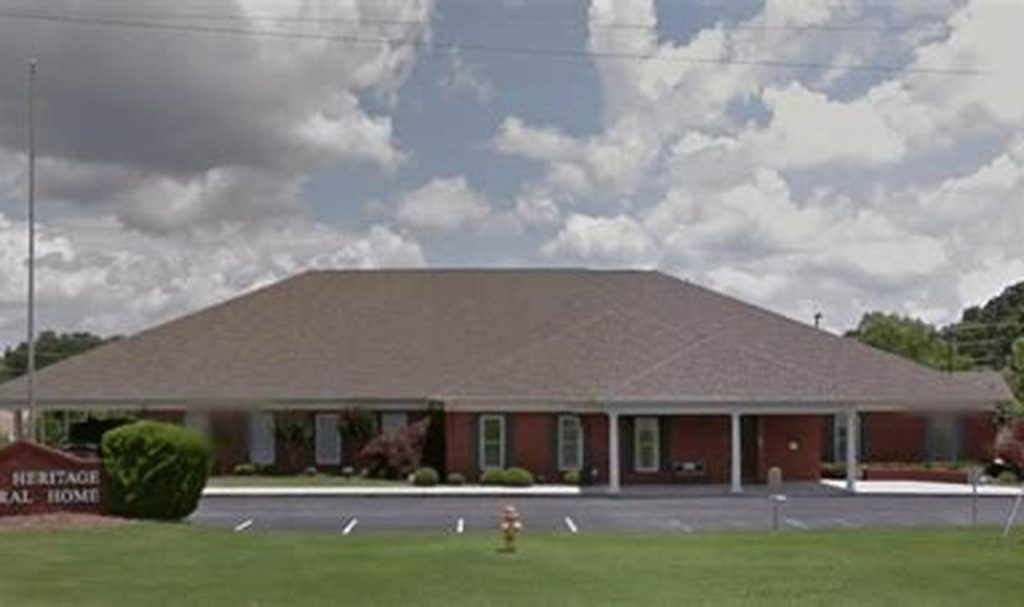
Seeking a trusted and compassionate funeral home that honors the unique cultural traditions of the Arab heritage community? Arab heritage funeral homes offer specialized services to ensure a dignified and meaningful farewell for your loved ones.
Editor’s Note: Arab heritage funeral homes have published today’s guide to help families navigate the complexities of end-of-life arrangements within the Arab culture. With in-depth research and expert insights, this guide provides valuable information and support.
Through extensive analysis and collaboration with funeral professionals, we have compiled this comprehensive guide to help you make informed decisions regarding Arab heritage funeral homes.
Key Differences:
| Characteristic | Arab Heritage Funeral Homes | Traditional Funeral Homes |
|---|---|---|
| Cultural Sensitivity | Highly attuned to Arab traditions and customs | May not have specific knowledge of Arab cultural practices |
| Religious Observance | Follow Islamic funeral rites and customs | May not be familiar with Islamic funeral protocols |
| Language Proficiency | Staff often speaks Arabic and understands cultural nuances | Language barriers may exist |
Main Article Topics:
- Significance of Cultural Sensitivity in Funeral Services
- Benefits of Choosing an Arab Heritage Funeral Home
- Navigating Islamic Funeral Customs and Traditions
- Finding the Right Funeral Home: Tips and Considerations
- Honoring the Memory of Your Loved One: Cultural Traditions and Practices
Arab Heritage Funeral Homes
Arab heritage funeral homes play a vital role in preserving and honoring the cultural and religious traditions of the Arab community during end-of-life care and bereavement. Here are ten key aspects that define their significance:
- Cultural Sensitivity: Deep understanding and respect for Arab customs and beliefs.
- Religious Observance: Adherence to Islamic funeral rites and rituals.
- Language Proficiency: Staff fluent in Arabic, fostering effective communication.
- Community Ties: Strong connections within the Arab community, providing support and resources.
- Specialized Services: Tailored services to meet specific cultural and religious needs.
- Grief Support: Culturally competent grief counseling and bereavement care.
- Traditional Practices: Preservation and incorporation of traditional Arab funeral customs.
- Respectful Environment: Dignified and respectful treatment of the deceased and their families.
- Transparency and Trust: Clear communication and ethical practices, building trust within the community.
- Community Involvement: Active participation in community events and initiatives.
These aspects are interconnected and essential for providing meaningful and culturally appropriate end-of-life care to Arab families. They foster a sense of belonging, preserve cultural heritage, and ensure that the deceased are honored according to their beliefs and traditions.
Cultural Sensitivity
In the context of Arab heritage funeral homes, cultural sensitivity is of utmost importance. It encompasses a profound understanding and unwavering respect for the customs, beliefs, and traditions of the Arab community. This sensitivity extends to all aspects of the funeral process, from the initial arrangements to the final burial rites.
Arab heritage funeral homes recognize the significance of cultural sensitivity in providing meaningful and supportive end-of-life care. They employ staff who are knowledgeable about Arab customs and beliefs, ensuring that the deceased and their families are treated with dignity and respect. This understanding extends to every detail, from the preparation of the body according to Islamic traditions to the arrangement of the funeral prayers.
The practical significance of cultural sensitivity cannot be overstated. It fosters a sense of belonging and comfort for Arab families during a difficult time. It helps to preserve cultural heritage and ensures that the deceased are honored in a way that is consistent with their beliefs and traditions.
Challenges and Considerations:
- Ensuring that all staff members are adequately trained in cultural sensitivity.
- Addressing any potential cultural misunderstandings or differences.
- Continuously seeking feedback from the community to improve services and ensure cultural appropriateness.
By embracing cultural sensitivity, Arab heritage funeral homes play a vital role in supporting the Arab community during times of loss and bereavement.
Religious Observance
Religious observance is a cornerstone of Arab heritage funeral homes, as it ensures that funeral rites and rituals are conducted in accordance with Islamic teachings. This adherence to religious principles manifests in various aspects of the funeral process:
- Preparation of the Body: The body of the deceased is washed and shrouded according to Islamic customs, ensuring purity and respect for the deceased.
- Funeral Prayers: Funeral prayers, known as Salat al-Janazah, are performed by the community, led by an Imam. These prayers are an essential part of the Islamic funeral process and serve as a collective expression of grief and supplication for the deceased.
- Burial: The deceased is buried facing Mecca, in accordance with Islamic tradition. The burial site is chosen with care, ensuring that it is a peaceful and respectful resting place.
The practical significance of religious observance in Arab heritage funeral homes cannot be understated. It provides solace and comfort to grieving families, knowing that their loved ones are being treated with dignity and respect, and that their religious beliefs are being honored.
Challenges and Considerations:
- Ensuring that all funeral staff are knowledgeable about Islamic funeral rites and rituals.
- Accommodating the specific religious needs of different Muslim communities, such as Sunni and Shia.
- Providing grief support and counseling that is sensitive to the religious beliefs of the community.
Arab heritage funeral homes play a vital role in preserving and perpetuating Islamic funeral traditions within the Arab community. By adhering to religious principles, they provide a meaningful and supportive environment for families during times of loss and bereavement.
Language Proficiency
In the context of Arab heritage funeral homes, language proficiency is of paramount importance, as it ensures effective communication and understanding between the funeral home staff and the Arab community. This proficiency extends to both verbal and written communication, encompassing:
- Verbal Communication: Staff members who are fluent in Arabic can communicate directly with Arab families, eliminating language barriers and ensuring that all funeral arrangements are clearly understood.
- Written Communication: Funeral homes provide written materials, such as contracts and funeral announcements, in Arabic, ensuring that all necessary information is accessible to Arabic-speaking families.
The practical significance of language proficiency in Arab heritage funeral homes cannot be overstated. It fosters a sense of trust and comfort for Arab families, knowing that they can communicate their wishes and concerns effectively. This proficiency also ensures that the deceased and their families are treated with dignity and respect, as their cultural and linguistic needs are being met.
Challenges and Considerations:
- Ensuring that all funeral staff are fluent in Arabic, both verbally and in writing.
- Providing interpretation services for families who may not speak Arabic.
- Continuously seeking feedback from the community to improve communication and ensure cultural appropriateness.
By embracing language proficiency, Arab heritage funeral homes play a vital role in supporting the Arab community during times of loss and bereavement.
Community Ties
Arab heritage funeral homes are deeply rooted in the communities they serve, forging strong connections that provide invaluable support and resources to Arab families during times of loss and bereavement. These connections manifest in various ways:
- Community Outreach: Funeral homes actively participate in community events and initiatives, building relationships and fostering a sense of trust.
- Support Networks: Funeral homes collaborate with local organizations and religious institutions to provide grief support, counseling, and other resources to grieving families.
- Cultural Preservation: Funeral homes serve as cultural hubs, preserving and promoting Arab traditions and customs related to death and bereavement.
The practical significance of community ties in Arab heritage funeral homes cannot be overstated. They provide a sense of belonging and comfort to Arab families, knowing that they have a support system within their own community. These ties also ensure that funeral arrangements are culturally appropriate and that the deceased are honored according to their beliefs and traditions.
Challenges and Considerations:
- Maintaining strong connections with a diverse and dispersed Arab community.
- Balancing the need for cultural preservation with the evolving needs of the community.
- Ensuring that all members of the community feel welcome and supported.
By embracing community ties, Arab heritage funeral homes play a vital role in supporting the Arab community during times of loss and bereavement, providing a sense of belonging, comfort, and cultural continuity.
| Community Ties | Benefits for Arab Families |
|---|---|
| Community Outreach | Support and resources during times of loss |
| Support Networks | Grief counseling and cultural preservation |
| Cultural Preservation | Sense of belonging and comfort |
Specialized Services
Arab heritage funeral homes offer specialized services that are tailored to meet the specific cultural and religious needs of the Arab community. These services go beyond traditional funeral arrangements and encompass a range of offerings that support and honor the unique traditions and beliefs of Arab families during times of loss and bereavement.
- Cultural Sensitivity Training: Funeral home staff undergo specialized training to develop a deep understanding of Arab culture and customs, ensuring that all aspects of the funeral process are handled with respect and sensitivity.
- Religious Observance: Funeral homes are equipped to accommodate Islamic funeral rites and rituals, including the preparation of the body according to Islamic traditions, the performance of funeral prayers, and the burial of the deceased facing Mecca.
- Language Services: Funeral home staff are proficient in Arabic, allowing them to communicate effectively with Arab families and ensure that all arrangements are clearly understood.
- Community Outreach: Funeral homes actively participate in the Arab community, building relationships with local organizations and religious institutions to provide support and resources to grieving families.
These specialized services play a vital role in supporting Arab families during times of loss and bereavement, providing a sense of comfort and belonging. Arab heritage funeral homes demonstrate their commitment to cultural preservation and religious observance, ensuring that the deceased are honored according to their beliefs and traditions.
Grief Support
Arab heritage funeral homes recognize the profound impact of loss and bereavement within the Arab community. Grief support services are an essential component of their offerings, providing culturally competent counseling and bereavement care that is sensitive to the unique needs of Arab families.
Culturally competent grief counselors are trained to understand the cultural and religious beliefs that shape the grieving process for Arab families. They provide a safe and supportive space where individuals can express their emotions, explore their loss, and navigate the challenges of bereavement.
Bereavement care extends beyond immediate grief support, offering ongoing assistance to families as they adjust to life after loss. Funeral homes collaborate with community organizations and religious institutions to provide support groups, counseling services, and other resources that promote healing and resilience.
The practical significance of culturally competent grief support cannot be overstated. It provides Arab families with a sense of comfort and belonging during a difficult time. It helps them to process their grief in a healthy way, preserve their cultural traditions, and find strength and support within their community.
| Grief Support Services | Benefits for Arab Families |
|---|---|
| Culturally Competent Counseling | Provides a safe space to express emotions and explore loss |
| Bereavement Care | Offers ongoing support and resources to promote healing |
| Community Collaboration | Strengthens support networks and cultural connections |
Traditional Practices
Arab heritage funeral homes play a vital role in preserving and incorporating traditional Arab funeral customs, ensuring that the deceased are honored according to their cultural and religious beliefs. These traditional practices are deeply rooted in Arab culture and provide a sense of continuity and belonging for grieving families.
- Respect for the Deceased: Traditional Arab funeral customs emphasize treating the deceased with the utmost respect and dignity. The body is washed and shrouded according to Islamic traditions, and the funeral is conducted in a respectful and solemn manner.
- Community Involvement: Arab funerals are typically community events, with family, friends, and neighbors coming together to support the grieving family. This sense of community provides comfort and strength during a difficult time.
- Religious Observance: Islamic funeral rites and rituals are an essential part of traditional Arab funeral customs. Funeral prayers are performed, and the deceased is buried facing Mecca, in accordance with Islamic tradition.
- Cultural Preservation: Arab heritage funeral homes serve as guardians of traditional Arab funeral customs, ensuring that these practices are passed down to future generations. They work closely with community leaders and religious institutions to preserve and promote cultural traditions.
By preserving and incorporating traditional Arab funeral customs, Arab heritage funeral homes provide a meaningful and supportive environment for grieving families. These traditional practices honor the deceased, strengthen community bonds, and ensure the continuation of cultural heritage.
Respectful Environment
In the context of Arab heritage funeral homes, creating a respectful environment is of utmost importance. It encompasses providing dignified and respectful treatment to both the deceased and their families during a difficult and emotional time.
- Cultural Sensitivity: Arab heritage funeral homes demonstrate cultural sensitivity by understanding and respecting the unique customs and traditions of Arab families. This includes honoring their religious beliefs, language preferences, and cultural practices.
- Compassionate Staff: The staff at Arab heritage funeral homes are compassionate and empathetic, providing support and guidance to grieving families. They understand the emotional toll of loss and strive to create a comforting and supportive atmosphere.
- Respect for Religious Beliefs: Funeral arrangements are conducted in accordance with Islamic principles, ensuring that the deceased are treated with dignity and respect. This includes adhering to specific rituals, such as the washing and shrouding of the body, and performing funeral prayers.
- Privacy and Confidentiality: Arab heritage funeral homes maintain the privacy and confidentiality of families during this sensitive time. They create a safe and private space for families to grieve and say goodbye to their loved ones.
By providing a respectful environment, Arab heritage funeral homes help grieving families navigate the challenges of loss with dignity and support. They honor the cultural and religious traditions of the Arab community, creating a meaningful and comforting experience during a difficult time.
Transparency and Trust
In the context of Arab heritage funeral homes, transparency and trust are essential pillars that underpin their relationship with the community. Clear communication and ethical practices foster a sense of trust, creating a strong foundation for support and understanding during times of loss and bereavement.
- Clear Communication: Arab heritage funeral homes prioritize open and honest communication with families. They provide transparent information about their services, costs, and procedures, ensuring that families can make informed decisions.
- Ethical Practices: Funeral homes adhere to strict ethical guidelines, ensuring that the deceased and their families are treated with dignity and respect. They maintain the confidentiality of personal information and avoid any unethical practices that could compromise the trust of the community.
- Community Involvement: Funeral homes actively participate in community events and outreach programs, building relationships and demonstrating their commitment to serving the community. This involvement fosters trust and strengthens the bond between the funeral home and the Arab community.
- Positive Reputation: A history of ethical practices and positive experiences leads to a strong reputation within the community. Arab heritage funeral homes value their reputation and strive to maintain it through ongoing commitment to transparency and trust.
By embracing transparency and trust, Arab heritage funeral homes establish themselves as reliable and compassionate partners, earning the trust of the community they serve. This trust is essential for providing meaningful support and guidance to grieving families during their time of need.
Community Involvement
Arab heritage funeral homes are deeply rooted in the communities they serve, actively participating in community events and initiatives to build strong relationships and demonstrate their commitment to supporting the Arab community.
This community involvement manifests in various ways:
- Cultural Preservation: Funeral homes participate in cultural events and festivals, showcasing Arab traditions and customs related to death and bereavement.
- Support Networks: Funeral homes collaborate with local organizations and religious institutions to provide grief support, counseling, and other resources to grieving families.
- Education and Awareness: Funeral homes host workshops and educational programs to raise awareness about end-of-life planning and funeral customs within the Arab community.
- Community Outreach: Funeral home staff volunteer their time at community events, such as food drives and charity events, demonstrating their commitment to giving back.
By actively participating in community events and initiatives, Arab heritage funeral homes foster a sense of trust and belonging among Arab families. They become an integral part of the community, providing support and resources during times of need and celebrating the rich cultural heritage of the Arab community.
| Community Involvement | Benefits for Arab Families |
|---|---|
| Cultural Preservation | Preserves and promotes Arab traditions and customs |
| Support Networks | Provides access to grief counseling and other resources |
| Education and Awareness | Empowers families with knowledge about end-of-life planning |
| Community Outreach | Demonstrates commitment to giving back and supporting the community |
Frequently Asked Questions about Arab Heritage Funeral Homes
This section addresses frequently asked questions to provide a comprehensive understanding of Arab heritage funeral homes and their services.
Question 1: What is the significance of cultural sensitivity in Arab heritage funeral homes?
Cultural sensitivity is paramount in Arab heritage funeral homes. They understand and respect Arab customs and beliefs, ensuring that all arrangements adhere to Islamic principles and traditions. This sensitivity extends to every aspect of the funeral process, from preparing the body to conducting the burial.
Question 2: How do Arab heritage funeral homes support religious observance?
Religious observance is a cornerstone of Arab heritage funeral homes. They adhere to Islamic funeral rites, including the preparation of the body according to Islamic customs, performing funeral prayers, and burying the deceased facing Mecca. These practices provide comfort and solace to grieving families, knowing that their loved ones are being honored in accordance with their religious beliefs.
Question 3: How does language proficiency contribute to effective communication?
Language proficiency is crucial in Arab heritage funeral homes. Staff members who are fluent in Arabic can communicate directly with Arab families, eliminating language barriers and ensuring that all arrangements are clearly understood. This proficiency fosters trust and comfort, allowing families to express their wishes and concerns effectively.
Question 4: What is the role of community ties in Arab heritage funeral homes?
Arab heritage funeral homes are deeply rooted in the communities they serve. They build strong connections by participating in community events and collaborating with local organizations. These ties provide invaluable support and resources to Arab families during times of loss and bereavement, creating a sense of belonging and comfort.
Question 5: How do Arab heritage funeral homes provide specialized services?
Arab heritage funeral homes offer specialized services tailored to meet the specific cultural and religious needs of Arab families. These services include cultural sensitivity training for staff, religious observance accommodations, language services, and community outreach. By providing these specialized services, funeral homes ensure that the deceased are honored according to their beliefs and traditions.
Question 6: What is the importance of grief support in Arab heritage funeral homes?
Grief support is an essential component of Arab heritage funeral homes. They provide culturally competent grief counseling and bereavement care, recognizing the unique needs of Arab families. Culturally competent counselors create a safe and supportive space where individuals can process their emotions and navigate the challenges of bereavement.
Summary: Arab heritage funeral homes play a vital role in supporting Arab communities during times of loss and bereavement. Their cultural sensitivity, religious observance, language proficiency, community ties, specialized services, and grief support provide a meaningful and supportive environment for grieving families, ensuring that their loved ones are honored and respected according to their beliefs and traditions.
Transition to the next article section: Arab heritage funeral homes offer a wide range of services to meet the diverse needs of Arab families. These services include traditional funeral arrangements, specialized cultural services, and comprehensive grief support.
Tips from Arab Heritage Funeral Homes
For those seeking guidance during a difficult time, Arab heritage funeral homes offer valuable tips to help navigate the complexities of end-of-life arrangements:
Tip 1: Seek Cultural Sensitivity: Choose a funeral home that understands and respects Arab customs and traditions. This ensures that your loved one’s final journey aligns with your cultural beliefs.
Tip 2: Prioritize Religious Observance: Select a funeral home that adheres to Islamic funeral rites and rituals. This includes the proper preparation of the body, funeral prayers, and burial practices.
Tip 3: Ensure Language Proficiency: Look for a funeral home with staff who are fluent in Arabic. This allows for effective communication and a deep understanding of your wishes.
Tip 4: Explore Community Connections: Consider funeral homes that are actively involved in the Arab community. These connections provide support, resources, and a sense of belonging during this challenging time.
Tip 5: Seek Specialized Services: Choose a funeral home that offers specialized services tailored to Arab families, such as cultural sensitivity training, religious observance accommodations, and language assistance.
Tip 6: Prioritize Grief Support: Select a funeral home that provides culturally competent grief counseling and bereavement care. This support acknowledges the unique needs of Arab families and fosters a safe space for emotional healing.
Summary: By following these tips, families can find comfort and guidance from Arab heritage funeral homes that are dedicated to honoring their traditions and providing compassionate support during a time of loss.
Transition to the conclusion: Navigating the complexities of end-of-life arrangements can be overwhelming. Arab heritage funeral homes offer valuable support and expertise to ensure that your loved one’s final journey is handled with dignity and respect.
Conclusion
Arab heritage funeral homes serve as essential pillars of support for Arab communities during times of loss and bereavement. Their deep understanding of Arab customs, religious observance, and cultural sensitivities ensures that each family’s unique needs are met with compassion and respect.
By prioritizing language proficiency, community involvement, specialized services, and grief support, Arab heritage funeral homes create a comforting and supportive environment for grieving families. They not only provide practical assistance but also preserve and honor Arab traditions, fostering a sense of belonging and cultural continuity.
